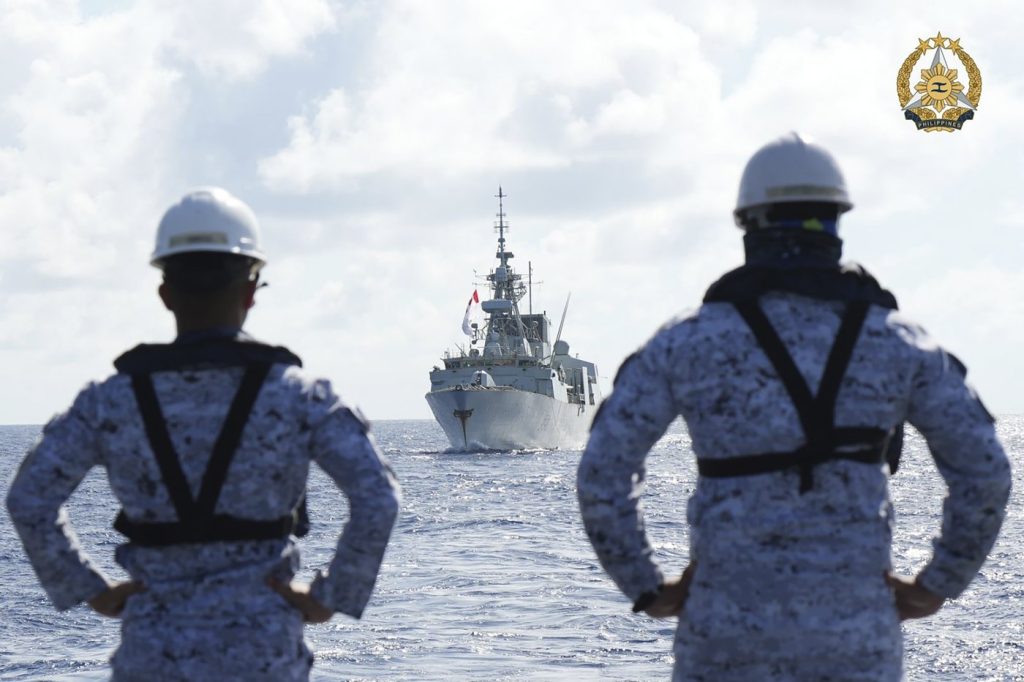MANILA, Philippines (AP) — Canada and the Philippines are nearing the final stages of negotiating a significant defense pact aimed at facilitating larger military drills between their forces. Canadian Ambassador to Manila, David Hartman, highlighted concerns regarding China’s “provocative and unlawful actions” in the region, underscoring the context of these negotiations.
In recent years, Canada has intensified its military presence in the Indo-Pacific region, committing to uphold the rule of law and enhance trade and investment opportunities. This aligns with the initiatives of Philippine President Ferdinand Marcos Jr., whose administration is focused on strengthening defense ties with allied nations. This strategy is particularly crucial as the Philippines confronts the challenges posed by an increasingly assertive China in disputed maritime areas.
Ambassador Hartman stated that Canada and the Philippines are “in the final stages of the negotiations of our status of forces visiting agreement.” This agreement is anticipated to allow for a more substantial Canadian involvement in joint and multilateral training exercises and operations alongside the Philippines and other allies in the region. He made these remarks during an event attended by Philippine national security officials, foreign ambassadors, and defense attaches aboard the HMCS Ottawa, a Royal Canadian Navy Halifax-class frigate, which is scheduled to participate in a joint exercise off the Philippines next week.
The Philippine military has actively engaged in multinational patrols and drills, especially since last year, collaborating with military counterparts from the United States, Japan, France, Australia, and Canada, notably in the South China Sea, which has raised tensions with China. China claims almost the entirety of this key global trade route and has deployed significant naval assets to assert its territorial claims. The Philippines, along with Vietnam, Malaysia, Brunei, and Taiwan, contests these claims, leading to heightened territorial confrontations, particularly between Beijing and Manila over the past two years.
In August 2022, Canada participated in joint air and naval maneuvers with the United States, Australia, and the Philippines, aimed at promoting the rule of law and ensuring free passage in the South China Sea. In an apparent rebuttal, China conducted air and sea combat patrols on the same day. However, while there were no direct confrontations reported, the Philippine military observed that three Chinese navy vessels monitored the maneuvers conducted by the four-nation coalition off the western coast of the Philippines.
Ambassador Hartman stressed Canada's commitment to confronting the “provocative and unlawful actions” of the People's Republic of China in the South China Sea and the West Philippine Sea, affirming that Canada will continue to be vocal on this issue. In 2022, Canada and the Philippines signed a defense cooperation agreement. Subsequently, another accord was established in Ottawa in 2023, granting the Philippines access to data from Canada’s “Dark Vessel Detection System,” which utilizes satellite technology to detect illegal vessels even if they disable their location-transmitting devices.
The Philippine coast guard has accused Chinese vessels of switching off their location-transmitting devices to evade detection while navigating in the South China Sea. Presently, the Philippines has visiting forces agreements with the United States and Australia, creating a legal framework for the temporary presence of foreign troops and large-scale combat exercises. In July 2022, the Philippines signed a similar accord with Japan, which awaits ratification by Japanese legislators.
Furthermore, discussions are ongoing regarding potential defense pacts with France and New Zealand, reflecting the Philippines’ proactive approach to strengthening its defense capabilities amid growing regional tensions.










